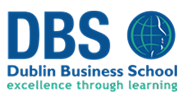About Higher Diploma In Science In Data Analytics in Dublin Business School
Dublin Business School in conjunction with Microsoft Ireland, their Partner Network and other relevant industry partners have developed an intensive Level 8 Graduate Conversion programme leading to a Higher Diploma in Science in Computing in Data Analytics award. Ireland is likely to face an average increase in demand for high-level ICT skills of around 5% a year out to 2018 with the employment of ICT professionals anticipated to rise to just over 91,000.
The Higher Diploma in Science in Data Analytics will provide graduates with the theoretical and practical skills required to meet the demands of industry. The proposed programme will enable learners to apply those transferable skills developed as part of their original degree to specific IT and Data Analytics areas. The current and projected skills shortages are increasing the demand for graduates with a skillset that embeds new technologies with existing established core computing skills. Use and implementation of technologies are changing fast and therefore so are the demand for specific technology skills. A strong core technology education will form a good basis upon which skills in the current and future cutting edge technologies can be built.
This programme aims to develop learners' knowledge of the theory and practice of Data Analytics necessary for them to secure employment and perform as graduate level ICT /Data Analytical practitioners in a broad range of commercial, industrial and public sector environments. Graduates will have a clear understanding of the practical and theoretical foundations of data analytics. The programme enables and supports learners in developing critical analytical skills and developing skills in applying theoretical concepts to the practice of data analytics.
Specific skills include the skills to develop,implement and maintain the hardware and software required to make use of data analytics including Big Data. THE EGFSN report, "Assessing the demand for Big Data and Analytics Skills, 2013-2020" forecasts a continuing strong demand for data analytics across the economy over the period 2015-2020 and estimates that Ireland has the potential to create between 12750 and 21000 job vacancies by 2020.
Specific skills that the proposed programme is preparing participants for include:
• Demonstrate a detailed knowledge and understanding of the methods and technologies for acquiring, interpreting and analysing big data
• Have knowledge of relevant statistical, mathematical and business tools employed to solve problems involving big data sets
• To be able to formulate and test hypotheses and experiments in the field of data analytics
• Critically interpret data analytical skills and technologies with a view to application in new circumstances
• Apply the scientific enquiry method to solve problems related to the data science field
• Act effectively both as an individual and a team member in a supervised work environment demonstrating technical and social proficiency in the manipulation of materials and the use of appropriate technologies
People with skills that marry business acumen, with the technical aspects of data analytics will be in high demand across industry sectors.
The programme is designed to embed various transferable skills across all modules. Skills such as teamwork, troubleshooting, communication, problem solving, reflective thinking and analytical reasoning are embedded throughout the programme.
To be considered for admission to this programme, applicants must hold a Primary Honours Degree (Level 8) in a cognate discipline from a recognised third level institution or equivalent qualification. In addition, an IELTS score of a minimum 6.0 or equivalent is required, where full-time study has been conducted in a language other than English or for applicants whose first language is not English. Applications without this will be considered on the basis of approved prior experience and learning (RPL).
Candidates will ideally be able to demonstrate technical or mathematical problem solving skills as part of previous programme learning. Typically holders of more technical, numerate degrees are likely to gain a higher ranking in any order of merit in selection for the programme.
Typical disciplines which would fall into this category would be:
• Engineering
• Architecture
• Mathematics
• Physics
Some candidates will also have gained a Level 8 qualification in a programme with a significant IT component and/or significant numerate element. Such programmes vary greatly in mathematical and information technology content and assessment would be by detailed examination of subject content, assessments and syllabi. Typical programmes which would fall into this category could include:
• Management Information Systems
• Accounting
• Business
• Management
Dublin Business School Highlights
| Type of University |
Public |
| Faculty Members |
1,186 |
| Percentage of International Students |
22% |
| Basic Tuition Fee, UG International Students |
14,000 Euros |
| Basic Tuition Fee, PG International Students |
14,800 Euros |
| Test Scores Accepted |
TOEFL, IELTS, PTE |

